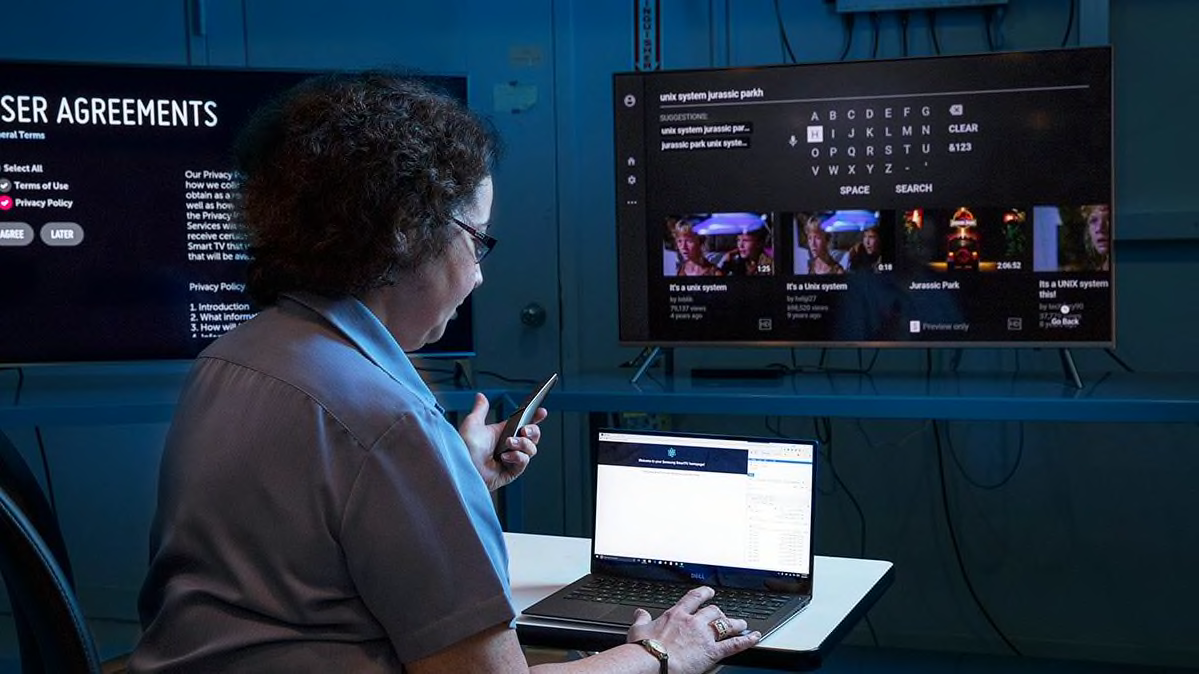
A few of the volunteers in our study shrugged off the way data is collected by the TVs in their homes, while others were more troubled by it.
"Honestly, I don’t normally read things like this, for consumer products anyways," Toshiba Fire TV owner Gary told us. "I’ll read the fine print if I’m signing off on some bank statements . . . but when it comes to normal, everyday consumer objects, I don’t tend to read these.”
By contrast, Olga said her Amazon smart TV, made by Toshiba, reminded her of Facebook, and not in a good way. "They build a profile on what kind of consumer you are, then you’re targeted with ads that the advertisers think, potentially, will be of interest to you. I usually get irritated with that. It's annoying. It just makes me very aware that my information is out there and someone is collecting it."
Whether the data collection bothered them or not, our study participants didn't feel like they could do much about it.
One participant named Philip told us he felt that if he said no to the privacy policies, "I wouldn’t even really be able to use the smart aspect of the TV, which I would say is the biggest reason we purchased it. Being able to access the streaming services through their interface makes it super-convenient."
The study participants have a point. LG and Samsung smart TVs do allow you decline their user agreements during setup, but if you do that, you can't use the televisions' streaming functions.
By contrast, Amazon Fire TVs, Android TVs, and Roku TVs all require you to accept a privacy policy—you can't opt out. When you set up an Android TV, for instance, you get to a screen where you need to click "Accept" to agree to a privacy policy. Otherwise, you can't continue the setup process, and you can't use the TV at all, even as a "dumb" set without internet access.
"Users do need to accept the Google terms and policies, but they are not required to sign into a Google Account," a Google spokesman told us. "So the experience for a non signed-in user isn't tied to a particular Google account."
However, most TVs do give you some privacy controls. Typically, you can adjust a technology called automatic content recognition, or ACR, that tells manufacturers what you're watching, whether it comes from cable TV, through an antenna, from streaming service, or even from your DVD or Blu-ray collection.
Our study volunteers were surprised to learn about these settings. On their own, none of them had realized they could control any aspect of data collection, and they found the controls tricky to locate even once we asked them to go searching.
"Now that I’m seeing this, I wonder if I can go back through this setup and just uncheck all the data collection," Vincent told us. "It was a while ago, and I don't really recall [what I agreed to]."
(Vincent knows how to find those settings now. For everyone else, CR has a guide to turning off smart TVs' snooping features.)
The way our study volunteers had largely given up hope when it comes to protecting their data raises a concern about the way privacy works for TVs, along with other products and services. Our study suggests that consumers have been trained not to look too closely at what kind of information their devices collect, or whether they can do anything to protect their privacy. People may assume that when they see a privacy policy, they don't have a meaningful choice. And often they're right.
"If you don’t agree at the beginning, they won’t let you proceed to the next step," one participant said. "So what’s the point of fighting it?"
"TV" - Google News
March 06, 2020 at 10:08PM
https://ift.tt/2vJgeYh
Smart TV Privacy | TV Privacy Settings - ConsumerReports.org
"TV" - Google News
https://ift.tt/2T73uUP
Shoes Man Tutorial
Pos News Update
Meme Update
Korean Entertainment News
Japan News Update
Bagikan Berita Ini














0 Response to "Smart TV Privacy | TV Privacy Settings - ConsumerReports.org"
Post a Comment